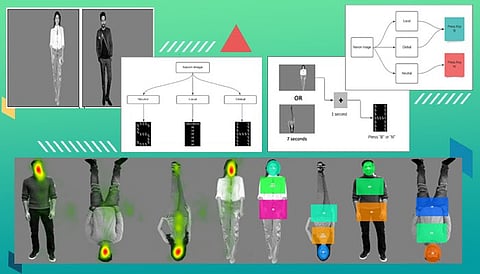

How many times have we heard the following statement been uttered by the society every time a woman got raped, molested, harassed, assaulted or even eve-teased?
"She shouldn't have worn those revealing clothes, she asked for it"
An Indian Institutes of Information Technology (IIIT) debunks it.
Objectifying Gaze: An Empirical Study With Non-Sexualised Images, a research paper authored by Ayushi Agrawal and Srija Bhupathiraju has looked at the visual gaze with the help of eye-tracking technology and cognitive science theories.
The study is funded by the Department of Science and Technology, Department of Science and Technology (DST), Government of India. It was done under the guidance of Prof Kavita Vemuri of the Cognitive Science Lab at IIIT Hyderabad. It was presented at Cognitive Science Society (CSS) conference 2024 in Rotterdam.
Though attire is often held responsible, the researchers have found out that gaze objectification extends to women in even non-sexualised attire. “Regardless of attire, a woman is subjected to a very intrusive gaze in a public or any other space for that matter,” says Kavita.
The participants of the study were shown images of both men and women, and their visual gaze was tracked using heat maps. Also, key metrics were analysed such as the total fixation duration (time spent looking at a certain area of the body) and more.
“The Indian population still places a lot of importance on facial features. The evaluation of attractiveness and other social information is all extracted from the face,” explains Kavita.
This suggests that gaze objectification occurs regardless of attire and may be influenced by the social information we first gather from the face.
The broader issue is that numerous factors beyond female attire influence how we perceive, objectify, and mistreat or physically abuse a female.
These factors include toxic masculinity, power, social biases and stereotypes, impaired judgement and reduced inhibitions due to substance abuse, pornography, media portrayals of women, and various hormonal or clinical conditions among others, stated the press release from the institute..
